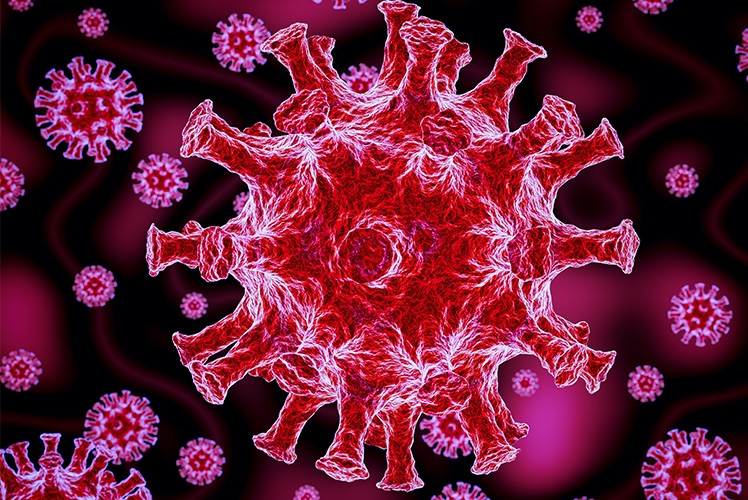Stay up-to-date with the latest information on the COVID-19 outbreak, which you can access on the WHO website and through relevant public health authorities at the national and local levels. Cases have been reported in many countries around the world, and outbreaks have occurred in several of them. Authorities in China and other countries have been successful in slowing or stopping the outbreaks, but the situation is unpredictable and the latest news needs to be checked regularly.
There are several precautions that can be taken to reduce the chance of getting or spreading COVID-19:
Explore the Contents
- 0.1 Wash your hands thoroughly and often using an alcohol-based sanitizer or soap and water.
- 0.2 Keep a minimum distance of 1 meter (3 feet) between you and anyone who coughs or sneezes.
- 0.3 Avoid touching your eyes, nose, and mouth
- 0.4 Both you and the people around you should ensure that you maintain good respiratory hygiene. That means covering your mouth and nose with a bent elbow or a tissue when coughing or sneezing. The used tissue must be disposed of immediately.
- 0.5 Stay home if you are unwell. If you have a fever, cough, and shortness of breath, seek medical attention and call ahead. Follow the instructions of the local health authorities.
- 0.6 Stay up-to-date on the latest news regarding COVID-19. Follow the advice of your healthcare provider, relevant national and local health authorities, or your employer on how to protect yourself and others from COVID-19.
- 0.7 Check out the latest news about the areas of greatest danger (that is, cities and places where the disease is spreading the most). If possible, avoid traveling to these areas, especially if you are older or have diabetes, heart disease or lung disease.
- 1 Protective measures for people who are in areas where COVID-19 is spreading or who have recently visited them (in the last 14 days)
- 1.1 Stay home if you start to feel sick, even if they are mild symptoms such as headache, slight fever (37.3 or C or more) and mild rhinorrhea, until he recovers. If it is essential for you to leave the house or have a visitor (for example, to get food), wear a mask to avoid infecting other people.
- 1.2 If you have a fever, cough, and shortness of breath, seek medical advice quickly, as it could be due to a respiratory infection or other serious condition. Call ahead and inform your healthcare provider of any recent trips you have taken or any contacts you have had with travelers.
Wash your hands thoroughly and often using an alcohol-based sanitizer or soap and water.
Why? Washing your hands with soap and water or using an alcohol-based sanitizer kills any viruses that may be on your hands.
Keep a minimum distance of 1 meter (3 feet) between you and anyone who coughs or sneezes.
Why? When someone coughs or sneezes, droplets of fluid that may contain the virus are released through their nose or mouth. If you are too close, you can breathe in the droplets and with them the COVID-19 virus, if the person coughing has the disease.
Avoid touching your eyes, nose, and mouth
Why? Hands touch many surfaces and can pick up viruses. Once contaminated, the hands can transfer the virus to the eyes, nose, or mouth. From there, the virus can enter your body and make you sick.
Both you and the people around you should ensure that you maintain good respiratory hygiene. That means covering your mouth and nose with a bent elbow or a tissue when coughing or sneezing. The used tissue must be disposed of immediately.
Why? Viruses spread through droplets. By maintaining good respiratory hygiene, you are protecting those around you from viruses such as colds, flu, and COVID-19.
Why? National and local authorities will have the most up-to-date information on the situation in their area. Calling ahead will allow your healthcare provider to quickly direct you to the right healthcare facility. This will also protect you and help prevent the spread of viruses and other infections.
Why? National and local authorities will have the most up-to-date information on whether COVID-19 is spreading in your area. They are the best interlocutors to give advice on what people in your area should do to protect themselves.
Check out the latest news about the areas of greatest danger (that is, cities and places where the disease is spreading the most). If possible, avoid traveling to these areas, especially if you are older or have diabetes, heart disease or lung disease.
Why? These precautions should be taken in these areas because the probability of contracting COVID-19 is higher.
Protective measures for people who are in areas where COVID-19 is spreading or who have recently visited them (in the last 14 days)
Follow the guidelines outlined above (Protection measures for all people).
Stay home if you start to feel sick, even if they are mild symptoms such as headache, slight fever (37.3 or C or more) and mild rhinorrhea, until he recovers. If it is essential for you to leave the house or have a visitor (for example, to get food), wear a mask to avoid infecting other people.
Why? Avoiding contact with other people and visits to medical centers will allow the latter to function more effectively and will help protect you and others from possible infections with the COVID-19 virus or others.
If you have a fever, cough, and shortness of breath, seek medical advice quickly, as it could be due to a respiratory infection or other serious condition. Call ahead and inform your healthcare provider of any recent trips you have taken or any contacts you have had with travelers.
Why? Calling ahead will allow your healthcare provider to quickly direct you to the right healthcare facility. This will also help prevent the spread of viruses and other infections.
Is there anything I shouldn’t do?
The following measures ARE NOT effective against COVID-2019 and may be harmful:
- Smoke
- Wear several masks
- Take antibiotics
In any case, if you have a fever, cough, and shortness of breath, try to get medical attention as soon as possible to reduce the risk of developing a more serious infection, and be sure to inform your healthcare provider about your recent travels.



